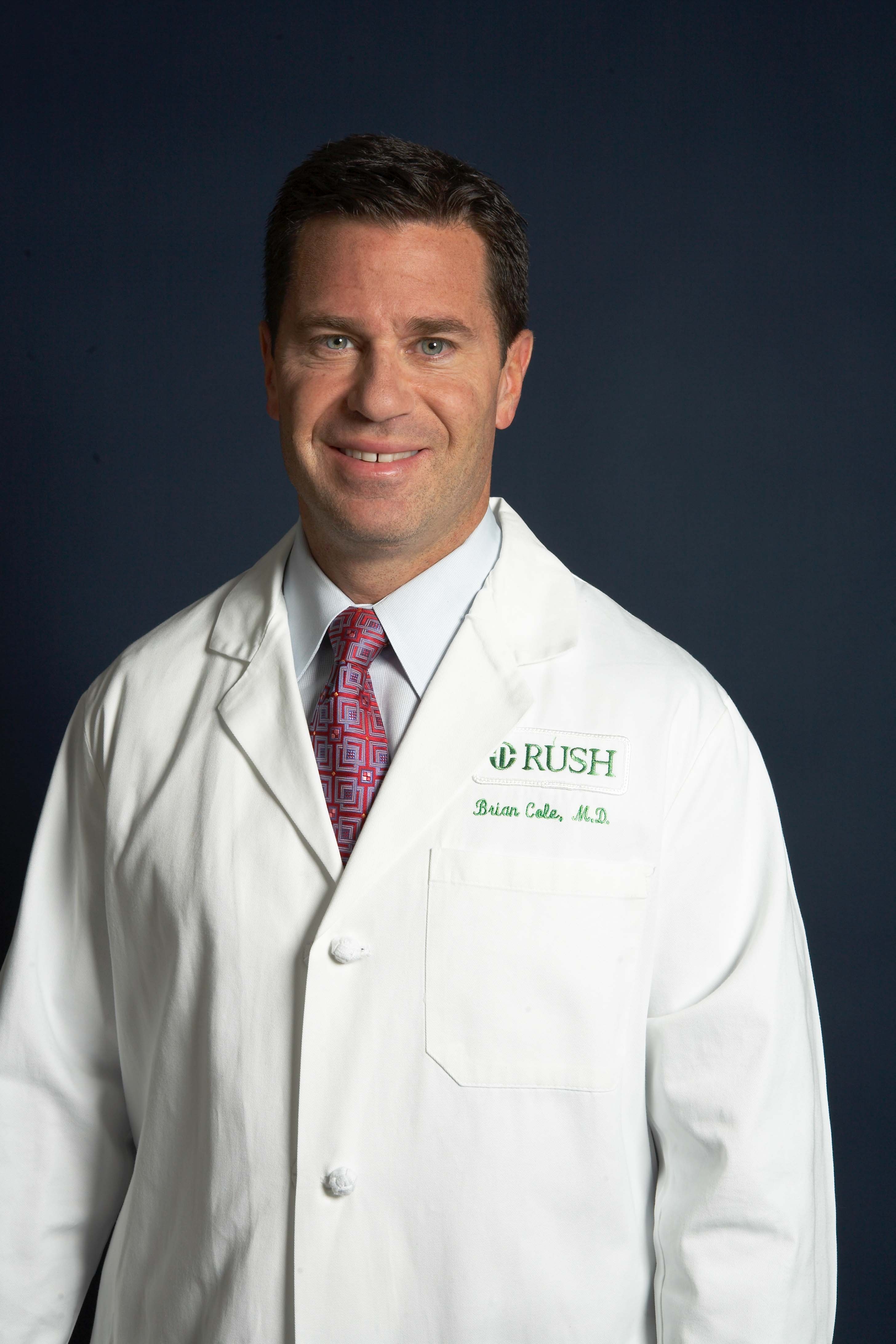 There are several exciting research projects going on right now in sports medicine. Brian Cole, MD, head of the Cartilage Restoration Center at Rush in Chicago and team physician for the Chicago Bulls and co-team physician for the Chicago White Sox, discusses the different research projects currently engaging his team.
There are several exciting research projects going on right now in sports medicine. Brian Cole, MD, head of the Cartilage Restoration Center at Rush in Chicago and team physician for the Chicago Bulls and co-team physician for the Chicago White Sox, discusses the different research projects currently engaging his team.
Orthobiologics
There are several different components making orthobiologics one of the most exciting fields in sports medicine. "Orthobiologics is one way to trick the body into healing more efficiently and completely through relatively easy treatment methods," says Dr. Cole. "We have access to stem cells and bone marrow, as well as the use of growth factors contained in PRP (platelet rich plasma) to develop treatments in this field."One of the biggest questions in sports medicine right now revolves around the effectiveness of platelet-rich plasma injections. Dr. Cole and his colleagues are conducting a randomized, double-blind, prospective trial comparing PRP with hyaluronic acid injections for tissue healing. The trial includes 100 patients with the diagnosis of osteoarthritis and symptomatic pain for at least one month before treatment.
Dr. Cole and his colleagues are studying the antioxidant resveratrol for delaying arthritis in an animal model. Physicians and researchers are using stem cells and bone marrow in addition to various scaffolds for treatments that could eventually lead to more reliable methods of healing. In rotator cuff repair, Dr. Cole and his team have developed a prosthetic augmentation device, designed like a patch, to enhance repair. The indications for its use continue to evolve.
"When collagen is bad, current treatments fail because the tendon comes off the bone," says Dr. Cole. "There is an interest in creating a high quality bone tissue interface to promote a durable repair with less chances of failure down the road."
Arthritis care
In arthritis care, some of the most cutting-edge developments focus on young patients with shoulder arthritis. Surgeons are now able to use various knee surgery techniques, including transplant, in the shoulder. Dr. Cole's team is working on unique methods to promote cartilage growth, for example, in the glenoid (the shoulder socket) in an animal model that can ultimately be translated into techniques to manage young patients with shoulder arthritis.For patients with knee arthritis, research focuses on next generation techniques for cartilage repair, says Dr. Cole. He and his team are using an autograft implantation technique for cartilage repair in patients in a phase one of several FDA studies being performed at Midwest Orthopedics at Rush where they harvest pieces of the knee cartilage with an arthroscope and implant them back into the damaged site with a bioabsorbable scaffold.
Additionally, Dr. Cole and his colleagues are in Phase III trials for another cartilage repair technique with DeNovo Engineered Tissue (ET). In this technique, articular cartilage is harvested from juvenile donors. Within the DeNovo ET implant, chondrocytes divide and produce a matrix before being surgically implanted into the patient's lesion site and affixed to the subchondroal bone with fibrin during a mini-open knee arthrotomy. In 2012, Dr. Cole hopes to begin another FDA trial utilizing stem cells to augment a microfracture technique that is currently utilized to treat patients with localized cartilage disease in many different joints including the shoulder and knee.
Symptom variability
In addition to several ongoing biologics studies, Dr. Cole and his colleagues are focusing on symptom variability among their patients. "We are looking at why some people hurt and other people don't, given similar injury or condition environments," says Dr. Cole. For example, some patients with cartilage degeneration find the condition extremely painful while others don't report experiencing pain.Another way to examine this problem is locating the pain generator in people who do report serious pain and comparing their symptoms to others.
Related Articles on Sports Medicine:
10 Orthopedic Surgeons Recently Treating Professional Athletes
NOCSAE Donates $845k to Sports-Related Concussion Research
25 Sports Medicine Physicians Honored in 2011

